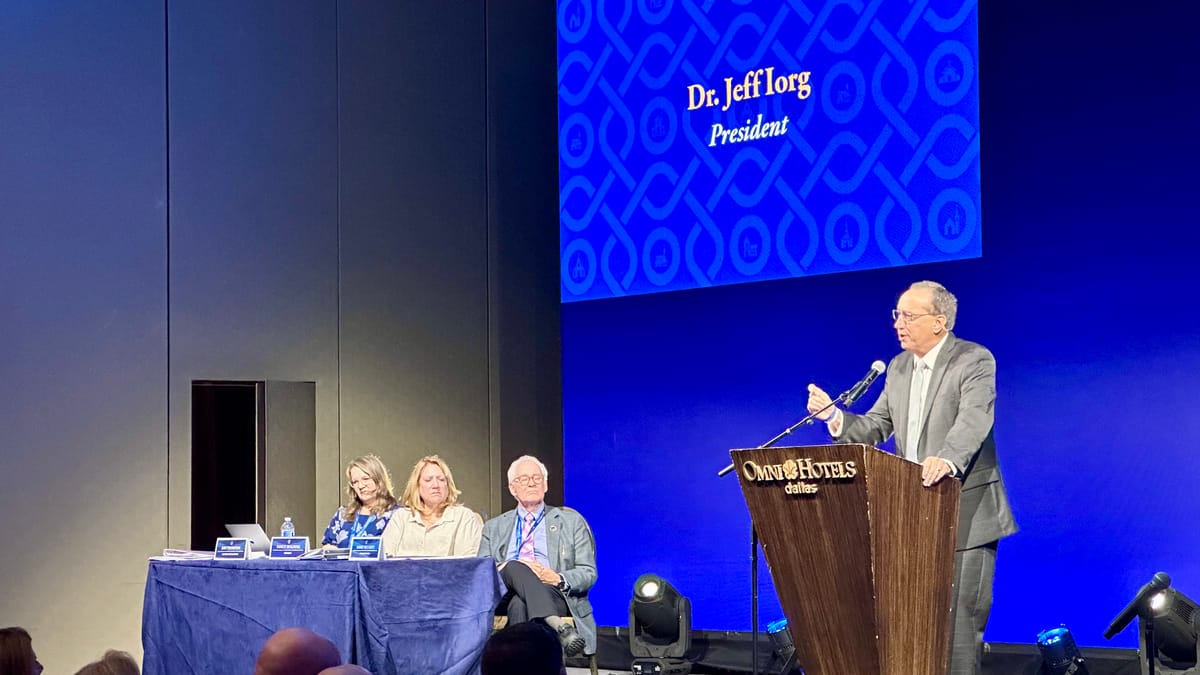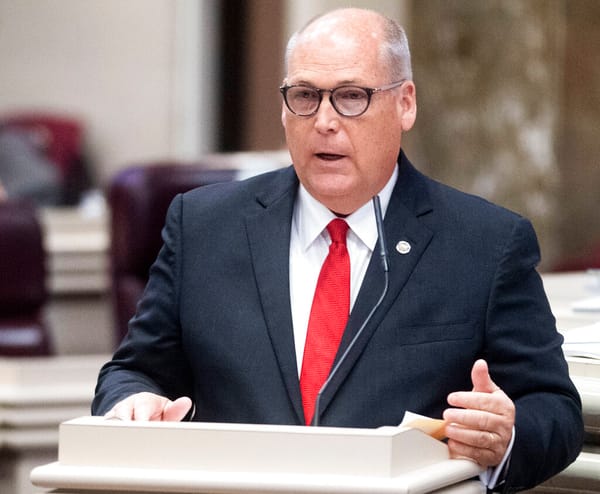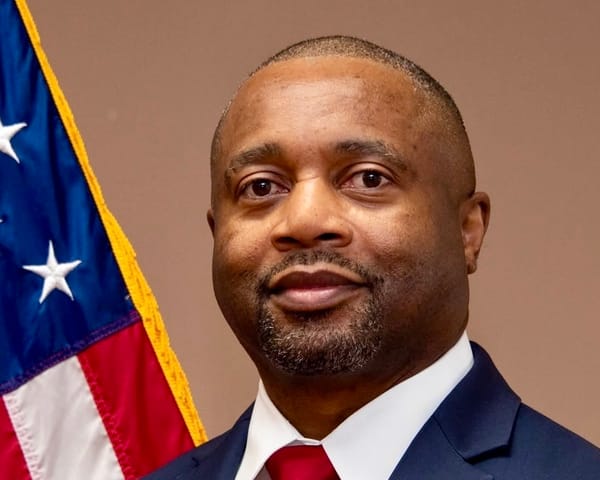Southern Baptists Reject Three Major Motions at 2025 Annual Meeting
Moves to abolish ERLC, women pastors, increase financial transparency all fail to receive necessary support

Three significant motions failed to garner sufficient support during the Southern Baptist Convention’s annual meeting in Dallas last week. All three would have resulted in significant structural changes to how the denomination operates, but none gained the necessary two-thirds support from the more than 10,000 Messengers in attendance.
A motion to abolish the Ethics and Religious Liberty Commission (ERLC) brought by Pastor Willy Rice of Florida would have eliminated ERLC. Rice argued the commission had “broken trust” by accepting funding from outside groups. He called for abolition not to erase the agency, but to “restore it … unencumbered by outside interests.”
Out of 6,581 valid ballots, 56.9% (3,744) voted to retain the ERLC, while 42.8% (2,819) favored abolition. Eighteen ballots were disallowed.
Juan Sanchez of Texas proposed a constitutional amendment on gender roles in the ministry that would require SBC-affiliated churches to “affirm, appoint or employ only men as any kind of pastor or elder as qualified by scripture.”
While 60.7% (3,421) of messengers supported the motion, it fell short of the 66% supermajority required. Twenty votes were disallowed in the total of 5,632.
A motion by Rhett Burns of South Carolina would have required all SBC-funded entities to release IRS Form 990-style financial reports.
The Convention’s Executive Committee, led by Jeff Iorg, cautioned that such reporting could expose the denomination to legal risks and unwanted government oversight.
Iorg stated, “We are not trying to hide … but we are instead defending [a court ruling].” Iorg emphasized that the SBC already maintains robust internal oversight, making the motion unnecessary.
Supporters, including Josh Abbotoy of Tennessee, argued that small churches manage such disclosures easily. “Every year, my pastor defends the church’s budget in front of the congregation, which is full of farmers, factory workers and grandparents on fixed incomes. If our little church can do it, I think we as a convention can do it too. I run a small nonprofit. Its budget is less than 1% of the SBC’s annual budget. We prepare a 990 — if we can do it, so can the SBC.”
Opponents of the measure like John Piwetz of Kentucky, reminded the Messengers of past transparency efforts that backfired. He cited the previous decision to waive attorney-client privilege for greater transparency, which “invalidated our insurance policy and opened us up to massive legal monetary liabilities.”
Piewetz argued that salary information lacks necessary context and would “inevitably generate disagreements, envy and division among churches, pastors and the peers of those whose salaries are publicized.”
The motion failed to pass when the question was called.
ERLC, in particular, has been a source of ongoing controversy within the SBC for some years now. Previous motions to disband it have also failed to pass by the necessary margins. For ERLC to be eliminated would require two successful motions by two successive annual meetings.
Despite the controversy, ERLC continues to have wide support among the SBC’s most influential members. Prior to the meeting, ten former SBC Presidents signed an open letter to the denomination opposing the motion to dissolve ERLC.
Even Rice, who brought the motion, described it as a “wake up call,” in the hope that ERLC would have a year to make changes before the next annual meeting, when its fate would come up for a final vote.
The vote on women pastors has also come before the Messengers at past meetings. In 2023, a similar proposal passed with the needed two-thirds margin, but fell short in 2024.
The Baptist Faith and Message states that “While both men and women are gifted for service in the church, the office of pastor/elder/overseer is limited to men as qualified by Scripture.” However, the SBC’s constitution lacks such a restriction.
Disagreements over whether the Faith & Message statememt applies only to women as a senior pastors, or whether it applies to ministry assistants with the title of “pastor” have swirled for years within the SBC. Purges on some churches with women in leading pastoral roles, or that held women could serve such roles, in recent years have kept the issue alive in the minds of SBC-affiliated churches. Most notoriously, the denomination’s second-largest church, California’s Saddleback Church was one of those expelled.
However, when the SBC Credentials Committee retained NewSpring megachurch in South Carolina—that has a woman on its pastoral staff—some argued this proved the need for a constitutional amendment.
At that time, SBC President Clint Pressley, called the Committee’s decision into question, posting “My understanding is that our Credentials Committee deemed a church in friendly cooperation that has a female teaching pastor. The committee needs to take another look at this one. Our statement of faith is clear about qualifications for a pastor.”
The motion to amend the SBC constitution to ban women in senior leadership roles was a result of wide-spread sentiments throughout the Convention.
NewSpring later left the SBC voluntarily.
Despite the failure of these motions to receive the two-thirds majority needed to pass, each continues to have significant support with Southern Baptists. It’s likely that all three will return in some form at future SBC annual meetings.
According to Jennifer Rash, Editor-in-Chief of The Alabama Baptist, there are an estimated 900,000 Southern Baptists “on the rolls” in some 3200 SBC-affiliated churches in Alabama, making it the largest denomination in the State.




